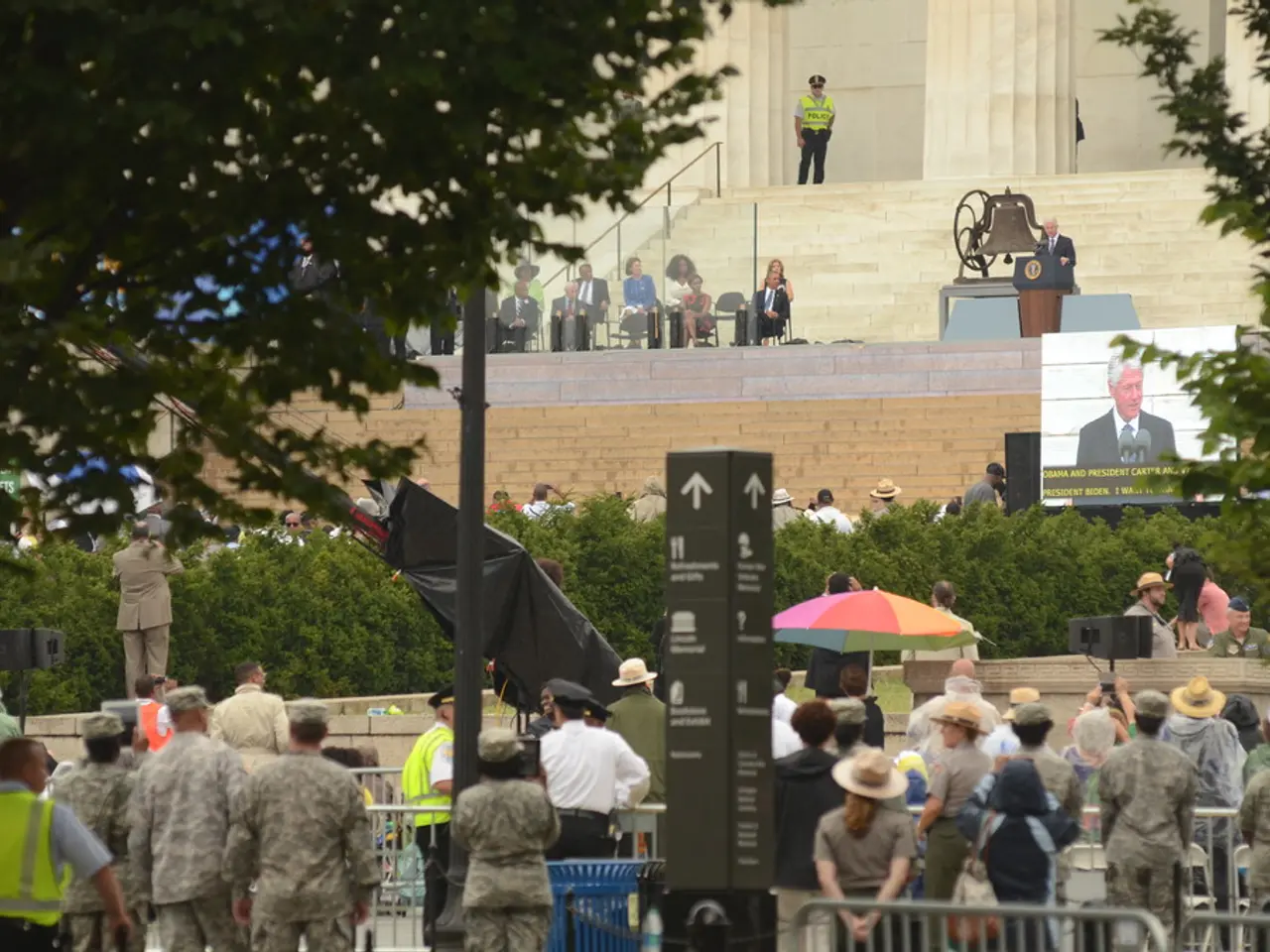Military Tuition Benefit receives $100 million boost from the Reconciliation Bill
In a significant move to support the education of active military personnel, the U.S. military tuition assistance is set to increase. The proposed changes, supported by an additional $100 million funding allocation in the recent reconciliation bill, will raise the payment from $250 per credit hour to $300 per credit hour[1].
The tuition assistance program, which has been in place for decades, is widely regarded as a recruitment and retention tool, as well as a means for promoting soldiers' personal development[2]. More than 230,000 service members, or about 25% of active military personnel, currently utilise the tuition benefit, taking over 665,000 courses each year[3].
The increase in the tuition assistance program is a response to the rising costs of higher education. Since 2002, college costs have increased by over 180%, with the average college credit hour now costing $490[4]. Service members still face a gap between tuition assistance and actual expenses, especially when considering additional costs like housing, books, and supplies[1][4].
The changes will see the annual assistance cap increase from $4,000 to $4,500, and semester hours covered per term increased from 16 to 18[3]. However, these changes may still fall short in fully covering the rising costs of college education.
The Presidents Forum, a nonprofit organization of college and university presidents and chancellors, approached Congress to request sufficient funding for increasing the credit hour reimbursement cap[5]. David Schejbal, president of Excelsior University and a member of The Presidents Forum governing board, stated that the current reimbursement rate has not kept pace with higher education costs, leading to some schools no longer prioritizing educating soldiers[5].
Rep. Jack Bergman (R- Michigan), Chairman of the House Armed Services Subcommittee on Readiness, supported the addition of $100 million for Military Tuition Assistance and added protective language to ensure the funding is used as intended[6]. Rep. Bergman cited four reasons for his support: readiness and development, recruitment and retention, transition to civilian life, and keeping our word to service members[6].
The increased funding and reimbursement rates are expected to encourage colleges to re-enter the enlisted personnel market[2]. Additional enhancements like eliminating housing allowance penalties for online students and raising assistance caps further could better close the gap in the future[1].
References:
- Military Times
- The Presidents Forum
- Congressional Research Service
- National Center for Education Statistics
- Inside Higher Ed
- Rep. Jack Bergman
- The increased tuition assistant program funding, as allocated in the reconciliation bill, is anticipated to drive colleges to re-enter the enlisted personnel market, enabling more military personnel to pursue education-and-self-development opportunities.
- business leaders and education stakeholders, such as David Schejbal from The Presidents Forum, continue to stress the importance of finance in education, advocating for additional measures to address the gap between tuition assistance and actual college tuition costs, including eliminating housing allowance penalties for online students and raising assistance caps.




